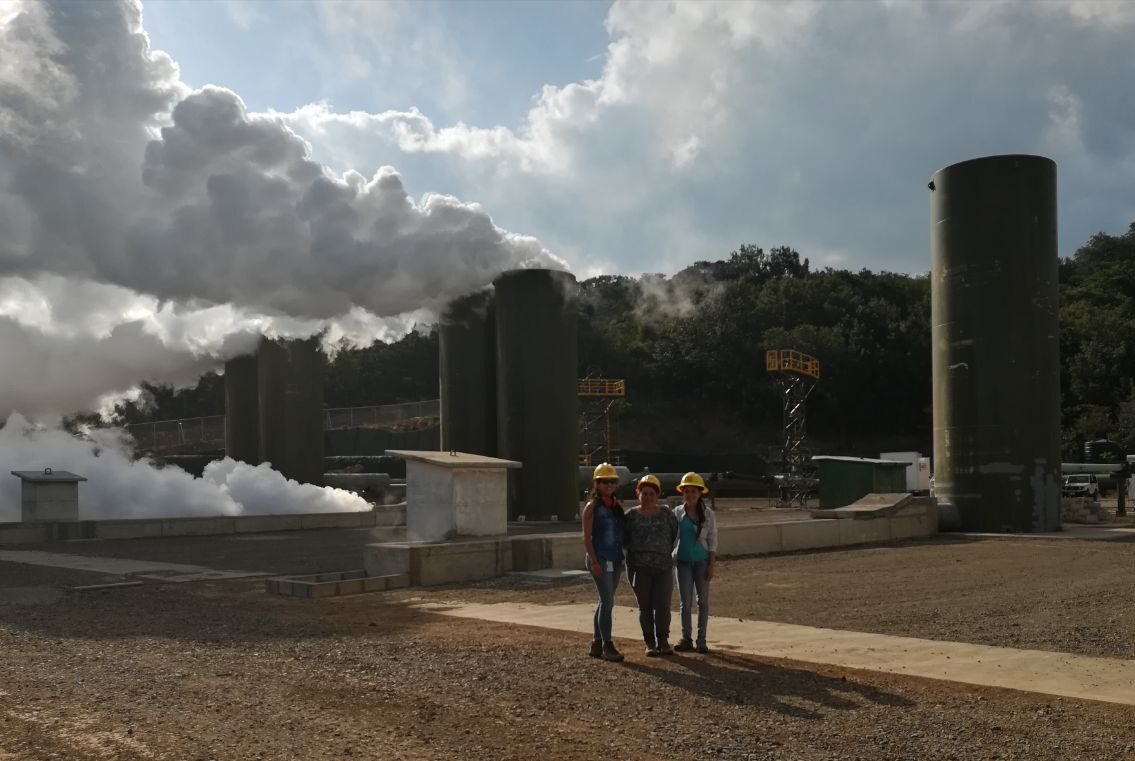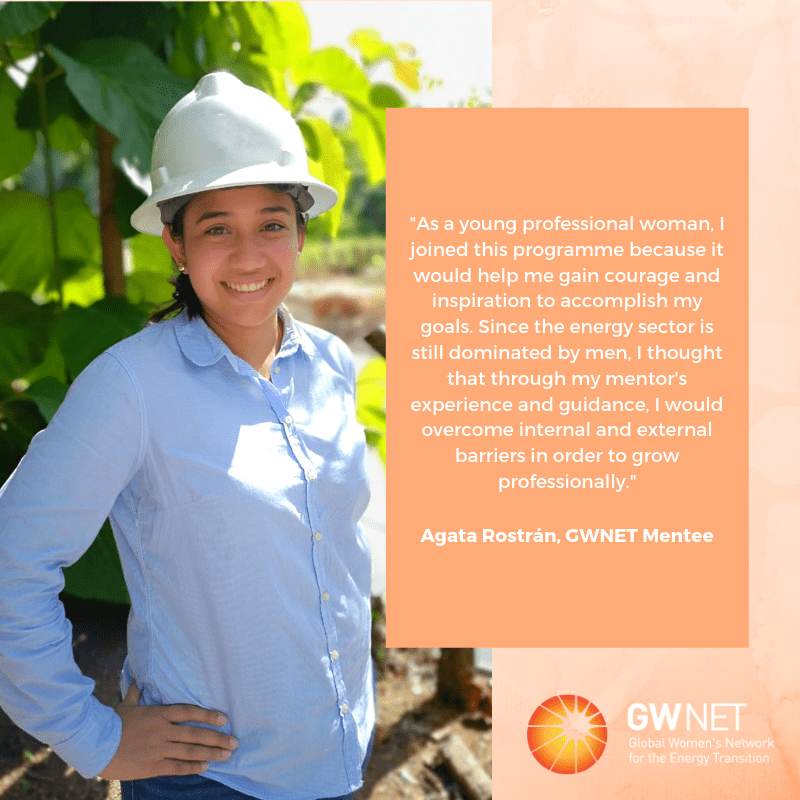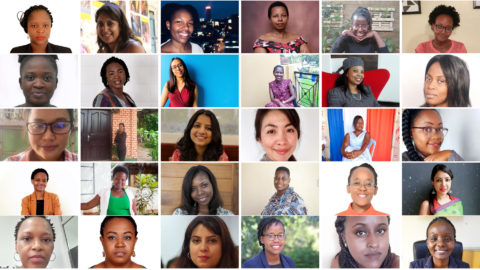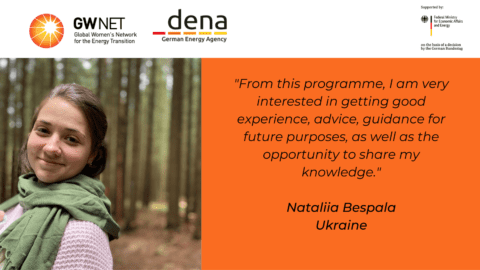GWNET brings you the 3rd instalment of the “Meet the Women in the Energy Transition” series which celebrates the work and achievements of the women who are part of GWNET’s 3/2020 Mentoring Programme. This mentoring programme is made up of 26 mentee-mentor tandems, with mentees from over 20 countries. Meet GWNET mentee, Ana Eloísa Méndez González, a Geochemistry Technician working at the Instituto Costarricense de Electricidad in Costa Rica.
1) Tell us a little about yourself. What do you love most about what you do?
I studied chemistry laboratory at the University of Costa Rica and when I started my career I worked at the Costa Rican Institute of Electricity (ICE) as an analyst in the geochemistry laboratory. For me, geothermal energy represented a whole new area.
5 years later, I can say that it’s been a great experience and that in addition to working in chemical analysis, which is what I love to do, geothermal energy is a very interesting area from which I have learned a lot and I still have more to learn. One of the things I love about what I do is being part of such an important process in the energy production of my country, and that every day I gain experience, understand more deeply and learn new things.
2) What were your goals when you started working in sustainable energy? Have these evolved?
As I mentioned, the geothermal energy was a completely new area for me, so my main objective at the beginning, in addition to joining the labour market, was to know and learn about how it develops. I had a slight idea of how geothermal works, but working on it is very interesting and something that I really like. I am satisfied with what I have achieved professionally and personally in this field, but I know that there is still much to learn.
3) How have you adapted to the challenges caused by the COVID-19 pandemic and what advice would you give someone going through similar challenges?
The situation facing the planet due to the pandemic has affected all areas of our lives. I think that the most important thing is to understand that we are in a moment where we must be responsible for our actions, that we should keep calm, but always take the necessary measures. That we should care for ourselves and for the people we love. People must know how to adapt, to change, and know how to get the best out of themselves when things become complex.
4) What are the opportunities for sustainable energy growth in your country?
There is a lot of opportunity for growth because there is great renewables potential since there are many sources to develop this type of energy. In Costa Rica, a high percentage of energy production is generated from renewable sources. Most of the energy comes from water (around 75%) followed by wind (10% approximately), and geothermal (10% approximately), in addition, we have biomass and the sun (nearly 1%). In addition, there are state policies that seek to achieve energy neutrality, so there are projects focused on achieving these objectives, like the electric train.

5) What challenges have you faced in the sector? Can you tell us how you overcame (or are overcoming) this challenge(s)?
Working in geothermal energy has brought many changes and challenges to my life, to which I have gradually adapted. I started at a very young age, so for me, it was a challenge to be in a new place, with new people and especially new knowledge. One of the most relevant examples is that the majority of employees are made up of men, especially those that correspond to jobs in the geothermal field. In addition, the majority of women who work in the institution (Geothermal Resources) do so in the administrative area, so when we visit the geothermal field, in our case to carry out samples, we are very few. Therefore, we have had to learn to function in an environment surrounded by men, breaking stereotypes and demonstrating that we are capable of contributing enormously in the area.
6) Why did you join the GWNET Mentorship Programme? What do you hope to achieve?
The programme is a great opportunity to learn from the experience of women with a long history in the sector and thus have a broader vision of the role that women play in the field of renewable energy, worldwide. I think it is a very valuable space that allows the exchange of experiences from many perspectives and countries, and in this way, we can grow and learn in the energy environment in which we operate, as women. I have high expectations for the programme and I hope to learn a lot and contribute as much as possible.
7) What advice would you give to women hoping to join the sustainable energy sector?
I would say that the renewable energy sector is very interesting since, in addition to its importance for the sustainable development of countries, it is a sector from which there is much to learn and in which women can make great contributions in all areas. I would also advise women not to allow themselves to be carried out by stereotypes – we must trust in our work and in our capacities, give our best and be certain that as women we are capable of achieving great things.
Read more about GWNET’s mentoring programmes here.











